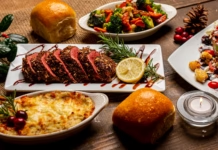Protecting your home and loved ones is a natural instinct. While security systems and other measures play a role, many people find comfort and added security in the presence of a dog. However, choosing a dog for home protection isn’t as simple as picking the biggest or most intimidating breed. It requires careful consideration of various factors, from the dog’s temperament and training needs to your lifestyle and living situation. This comprehensive guide will walk you through the process of selecting the right canine guardian for your home.
Understanding the Role of a Guard Dog
Before diving into breeds, it’s crucial to understand what you expect from a “guard dog.” Are you looking for a deterrent – a dog whose size and bark will discourage potential intruders? Or do you need a dog trained to actively engage and protect? Most homeowners prioritize deterrence. A loud bark and imposing presence are often enough to send criminals running. True protection work requires extensive training and is best left to professionals.
Key Factors to Consider:
- Temperament is Paramount: A good guard dog possesses a balanced temperament. They should be loyal and protective of their family but not overly aggressive or prone to indiscriminate biting. A dog that’s fearful or anxious is not a good choice, as they may react unpredictably. Look for a dog that’s confident, stable, and able to discern between a genuine threat and a friendly visitor.
- Size and Appearance Matter (to a Degree): A larger dog can be more intimidating, but size isn’t everything. A smaller, alert dog can be an excellent watchdog, barking to alert you to any unusual activity. The dog’s overall appearance also plays a role. A dog that looks alert and strong can be a deterrent, regardless of its actual size.
- Trainability and Obedience are Essential: A guard dog must be highly trainable and obedient. They need to respond reliably to commands, especially in stressful situations. Basic obedience training is the foundation for any further protection work. A dog that’s difficult to control is a liability, not an asset.
- Breed-Specific Traits: Different breeds have different predispositions. Some breeds are naturally more protective and territorial than others. However, remember that breed is just one factor. Individual temperament and training are equally important.
- Socialization is Crucial: Proper socialization is essential for any dog, especially one intended for guarding. Expose your dog to a variety of people, animals, and environments from a young age. This will help them develop into a well-adjusted and confident adult, less likely to react out of fear or aggression.
- Your Lifestyle and Living Situation: Consider your lifestyle and living situation. Do you have a large yard? Are you active and able to provide the dog with sufficient exercise? Some breeds require more exercise and mental stimulation than others. If you live in an apartment, a smaller breed might be more suitable.
- Health Considerations: Research the breed’s potential health issues. Some breeds are prone to certain genetic conditions. Choose a healthy dog from a reputable breeder. Regular veterinary care is essential for maintaining your dog’s health and well-being.
- Grooming Needs: Different breeds have different grooming requirements. Some require regular brushing, while others need professional grooming. Consider the time and cost involved in grooming before choosing a breed.
- Cost of Ownership: Owning a dog is a significant financial commitment. Consider the costs of food, vet care, grooming, training, and other expenses.
Popular Guard Dog Breeds (and Considerations):
- German Shepherd: Intelligent, loyal, and highly trainable, German Shepherds are a popular choice for guard dogs. They excel in obedience training and are naturally protective. However, they require a significant time commitment for training and exercise.
- Rottweiler: Powerful and protective, Rottweilers are known for their intimidating presence. They are loyal to their families but can be aloof with strangers. Rottweilers require firm and consistent training from an experienced owner.
- Doberman Pinscher: Alert and agile, Doberman Pinschers are quick to react to threats. They are intelligent and trainable but can be sensitive. Dobermans need early socialization and consistent training to prevent them from becoming overly anxious or aggressive.
- Bullmastiff: Large and muscular, Bullmastiffs are gentle giants with a strong protective instinct. They are loyal and affectionate with their families but can be wary of strangers. Bullmastiffs are relatively low-energy for their size but still need regular exercise.
- Belgian Malinois: Intelligent and energetic, Belgian Malinois are often used in police and military work. They are highly trainable and have a strong work ethic. Belgian Malinois require a significant time commitment for training and exercise and are not suitable for novice owners.
- Cane Corso: A large and powerful Italian breed, the Cane Corso is known for its protective instincts and loyalty. They require experienced owners and extensive socialization and training.
- Akita: Originally from Japan, Akitas are known for their loyalty and courage. They are reserved with strangers and can be territorial. Akitas require experienced owners and careful socialization.
- Giant Schnauzer: A large and powerful breed, the Giant Schnauzer is intelligent and protective. They require firm and consistent training and plenty of exercise.
- Staffordshire Terrier: Often misunderstood, Staffordshire Terriers are intelligent, loyal, and affectionate with their families. They can be protective but are generally friendly with people they know. They require responsible ownership and training.
Important Considerations Beyond Breed:
- Individual Dog’s Temperament: Remember that breed is just one factor. Even within a breed, individual dogs can have different temperaments. It’s essential to assess the individual dog’s personality and temperament before making a decision.
- Reputable Breeders: If you decide to purchase a puppy, choose a reputable breeder who prioritizes health and temperament. Ask to meet the parents and observe their behavior.
- Adopting from a Shelter or Rescue: Consider adopting a dog from a local shelter or rescue organization. Many adult dogs are looking for loving homes and may already have some training. Shelter staff can help you find a dog that matches your needs and lifestyle.
- Professional Training: Invest in professional training for your guard dog. A qualified trainer can help you teach your dog basic obedience and develop their protective instincts in a safe and responsible manner.
- Never Encourage Aggression: It’s important to emphasize that you should never encourage your dog to be aggressive. The goal is to have a dog that’s a deterrent and will alert you to any potential threats, not a dog that’s a danger to others.
- Legal Considerations: Be aware of your local laws regarding dog ownership and liability.
Conclusion:
Choosing a dog for home protection is a serious decision that should not be taken lightly. It requires careful consideration of various factors, including the dog’s temperament, trainability, and health, as well as your lifestyle and living situation. By doing your research, choosing a reputable breeder or adopting from a shelter, and investing in professional training, you can find the right canine guardian to protect your home and family. Remember, a well-trained and socialized dog is not only a protector but also a loving companion.




























